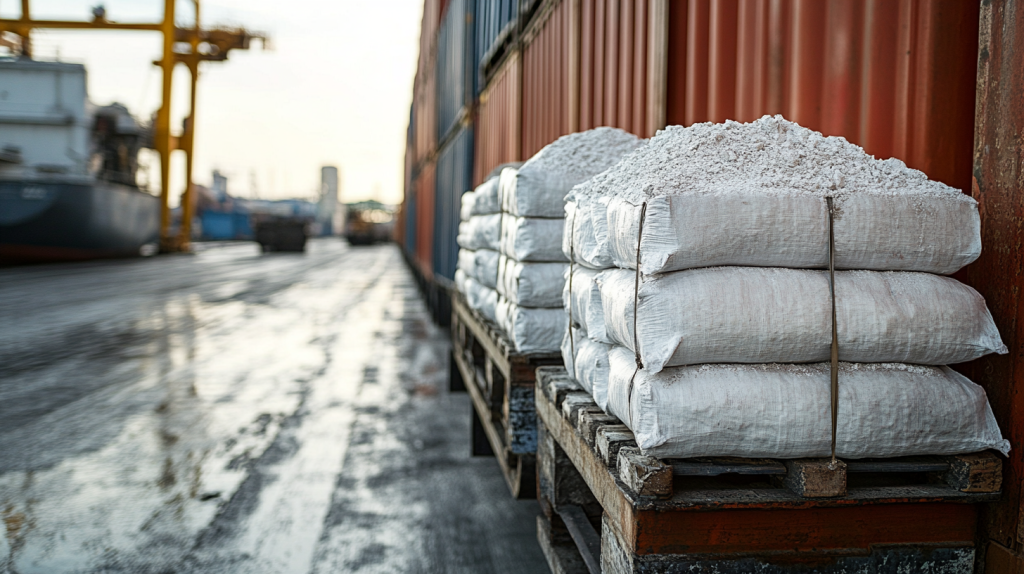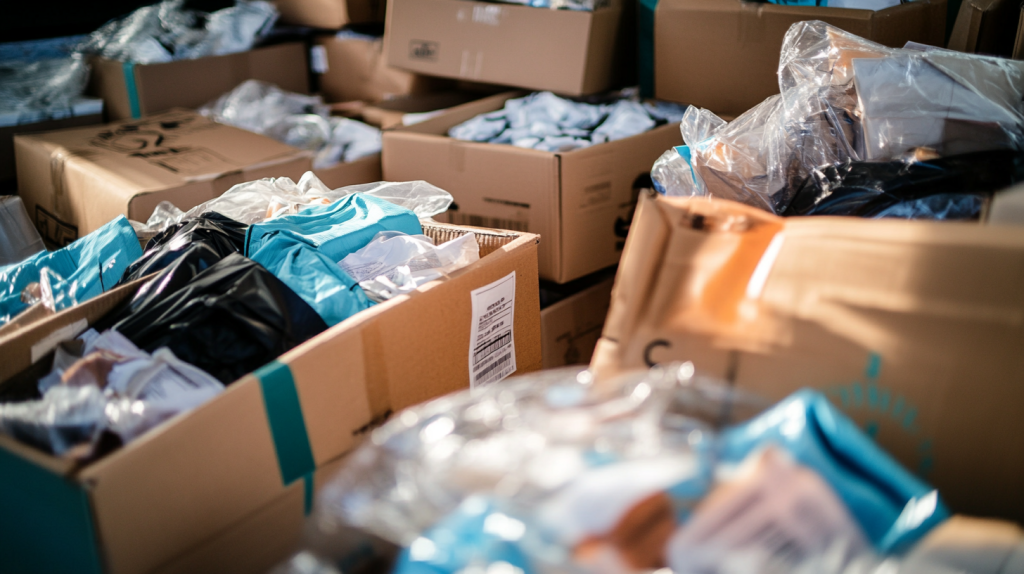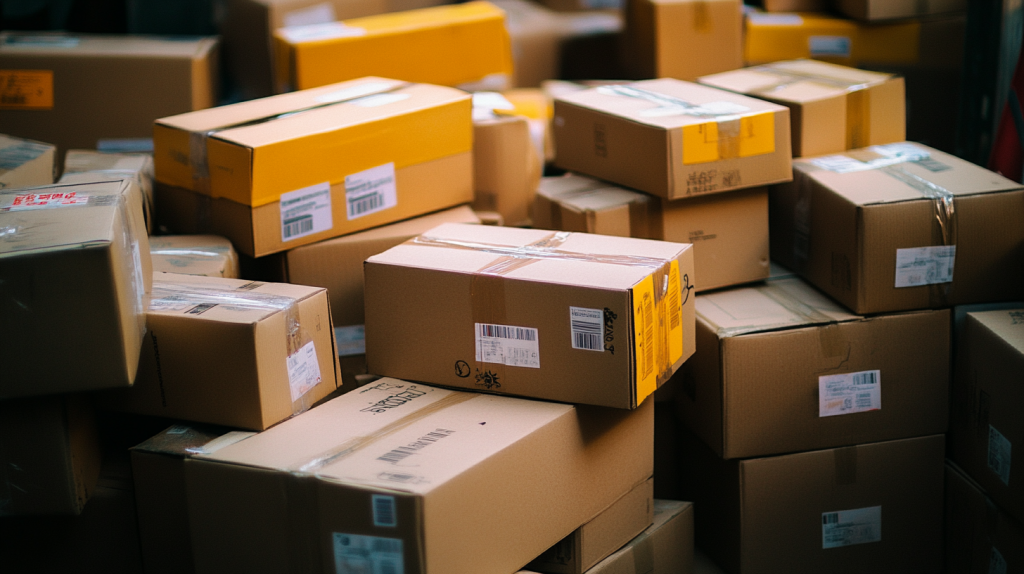I’ve run into some surprises when trying to send packages internationally, and I’ve learned that mailing rules can get pretty strict—and strange. You might think the restrictions are mostly about dangerous or illegal items, but even everyday objects can be banned for quirky or specific reasons.
A lot of these rules are there for health, safety, or security reasons, but some bans are just… puzzling. You wouldn’t believe some of the things that are considered prohibited when shipping abroad! Here’s a list of 25 items that you might be surprised to learn you can’t send across international borders:
Live Animals

You might assume that only large animals are prohibited, but mailing live creatures of any size—like insects, reptiles, or fish—is generally not allowed. Shipping live animals poses risks related to health, safety, and environmental concerns. Many countries enforce strict quarantine regulations to prevent the spread of disease, making it illegal to mail even small creatures internationally.
Lithium Batteries

Lithium batteries, found in many modern devices, are often banned due to their fire risk. Under certain conditions, they can overheat and potentially catch fire, which poses a significant danger during transport, especially on airplanes. Many postal services either ban or heavily restrict their shipment unless they’re packed according to strict guidelines.
Perfumes with Alcohol

Although sending perfume as a gift might seem like a kind gesture, it’s often restricted. Many perfumes contain alcohol, which is classified as a flammable liquid. This makes them hazardous to transport, especially by air, and many countries have regulations prohibiting their shipment through international mail services.
Playing Cards

In some countries, such as Thailand, playing cards are highly regulated due to strict gambling laws. It might seem odd, but mailing a deck of cards could violate local regulations. Thailand has even established a law requiring a special license to manufacture or import playing cards, highlighting the cultural sensitivity around gambling.
Tobacco Products

Shipping cigarettes, cigars, or any tobacco-related products internationally is heavily regulated and often outright banned. Countries enforce these restrictions for health reasons and to control illegal trade. Additionally, some countries have stringent age restrictions and tax regulations around tobacco, which complicates international shipping even further.
Precious Metals

Precious metals like gold and silver are often subject to strict import restrictions in countries like India and China. To control the flow of wealth and protect the local economy, some nations prohibit the mailing of bullion or even coins made from precious metals. Sending these items could result in confiscation or hefty fines.
Meat Products

Shipping meat products, whether raw or cooked, is prohibited in many countries due to concerns over food safety and disease transmission. Countries are particularly wary of imported meat because it can introduce harmful pathogens or disrupt local agriculture. Even cured meats like jerky are often included in these restrictions.
Seeds and Plants

Mailing seeds or live plants internationally is a major issue for countries with strict agricultural laws. Many nations prohibit the import of foreign plants due to the risk of introducing invasive species or agricultural pests that could damage local ecosystems. Some seeds might also carry plant diseases, making this a sensitive area for customs.
Laser Pointers

Laser pointers, particularly high-powered ones, are banned from international mailing in many countries. Authorities worry about the potential for these lasers to cause harm, especially when aimed at aircraft. Several incidents of pilots being temporarily blinded by laser pointers have led to strict regulations governing their transport.
Magnetic Materials

Magnets might seem like an innocent item, but strong magnetic fields can interfere with aircraft navigation systems or other electronic devices. Because of this, mailing items with strong magnets, such as industrial magnets or even some types of toys, can be prohibited by international postal services.
Alcoholic Beverages

Shipping alcohol is complicated due to varying regulations across countries. Alcohol is often subject to high taxes, and many postal services ban it outright due to its flammable nature and strict customs rules. Even a small bottle of wine or spirits can be seized if mailed internationally without proper documentation.
Aerosol Cans

Aerosol cans, such as those containing hairspray or cleaning products, are generally banned from international mail. These cans are pressurized, which could explode under high pressure, especially in an airplane’s cargo hold. Many postal services categorize aerosols as hazardous materials for this reason.
Human Ashes

Although it’s uncommon, some people try to mail cremated remains internationally, but most countries prohibit this. Mailing human ashes presents ethical, legal, and sanitary challenges. Special services and approvals are required for transporting cremated remains across borders, which regular international postal services generally do not offer.
Cultural Artifacts

Countries with rich cultural histories, such as Egypt or Greece, often prohibit the export of cultural artifacts. These items are protected by law to prevent the illegal trade of antiquities and preserve national heritage. If you attempt to mail a cultural artifact, it may be seized by customs, and you could face legal penalties.
Pesticides

Mailing pesticides internationally is generally banned due to their environmental and health hazards. Many pesticides contain harmful chemicals that could contaminate soil or water supplies if improperly handled. Countries strictly regulate the shipment of these substances to prevent misuse and accidents during transportation.
Live Plants

Sending live plants across international borders is not only risky but often illegal. Plants can carry pests or diseases that may harm native ecosystems. Many countries, especially those with fragile agricultural industries, prohibit the import of live plants to avoid introducing invasive species.
Firearms or Ammunition

Internationally shipping firearms or ammunition is illegal in most cases. Even toy guns or replicas can be subject to restrictions due to their resemblance to real weapons. Countries enforce these bans to control arms trafficking and ensure public safety, with heavy penalties for violations.
Ivory Products

Due to global efforts to protect endangered species, ivory is a highly regulated material. Mailing anything made from ivory, including jewelry or antiques, is often illegal. Many countries have strict laws prohibiting the trade or mailing of ivory to combat poaching and wildlife trafficking.
Sharp Objects

Many postal services prohibit the mailing of sharp objects like knives or box cutters because they pose a safety risk to handlers. Even tools that contain blades can be restricted. This is especially true for international shipping, where customs regulations add another layer of scrutiny.
Cash

Mailing cash internationally is often prohibited to prevent theft and fraud. Many countries have strict regulations against mailing large amounts of currency due to concerns over money laundering. Even small amounts of foreign currency can be flagged, so it’s best to avoid sending cash through international mail.
Bearer Bonds

Bearer bonds, which are similar to cash in that they belong to whoever physically possesses them, are banned from international mail. These financial instruments are prohibited to prevent theft and fraud, as they are easily transferable and untraceable once stolen.
Fertilizer

Fertilizers are often restricted because some contain chemicals that can be used to manufacture explosives. Shipping fertilizer internationally is tightly controlled, especially in light of global security concerns. Certain types of fertilizer can pose risks, both in terms of environmental hazards and safety during transport.
Counterfeit Goods

It’s illegal to mail counterfeit goods across international borders, even if you’re just sending them for personal use. This includes fake designer clothing, electronics, and other knock-offs. Many countries take intellectual property rights seriously, and customs agents will confiscate counterfeit goods if discovered.
Helium Balloons

While mailing helium-filled balloons might seem like harmless fun, they can expand and burst under pressure during flight. This poses a safety risk on airplanes, so many postal services prohibit sending helium-filled balloons internationally to prevent such accidents.
Fireworks

Fireworks might seem like a festive item to send, but they’re banned in most international mail due to their highly explosive nature. Shipping fireworks presents significant safety hazards, especially on airplanes where the pressure can cause them to ignite. Many countries also have strict regulations around fireworks for safety reasons, so attempting to send them internationally could lead to legal trouble or confiscation. Fireworks are categorized as hazardous materials, making them a no-go for international mail.
21 Things Pilots Are Forbidden to Do During Flights

Have you ever wondered what rules pilots must follow while they’re in the cockpit? Being a pilot is a job that comes with a lot of responsibility and a strict set of rules to ensure the safety of everyone on board.
These rules ensure that pilots maintain the highest standards of safety and professionalism while flying. By adhering to these guidelines, they help ensure that every flight reaches its destination safely.
Read More: 21 Things Pilots Are Forbidden to Do During Flights
Ellen has been obsessed with logic puzzles, jigsaws, and cryptograms since she was a kid. After learning she was taught how to play chess wrong by a family friend (so they could win), she joined her school chess club and the rest is history.


